
Lajme
string(131) "interview-british-ambassador-on-next-government-dialogue-with-serbia-in-any-negotiation-there-needs-to-be-a-readiness-to-compromise"English

Gazeta Express
11/02/2021 15:26Interview| British Ambassador on next Government, dialogue with Serbia: In any negotiation there needs to be a readiness to compromise
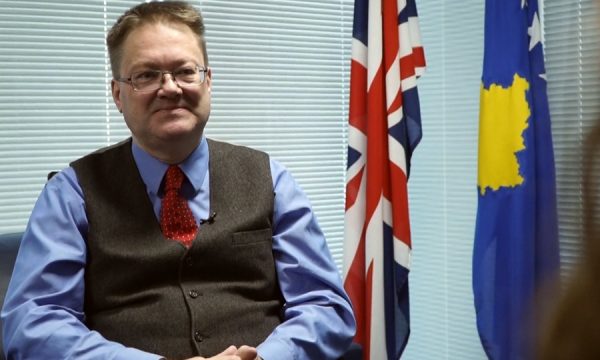
English

Gazeta Express
11/02/2021 15:26British Ambassador to Kosovo, Nicholas Abbott, says the EU facilitated Dialogue between Kosovo and Serbia should be a main priority for any incoming government. Ambassador Abbott in an interview with Gazeta Express said that in any negotiation, whether it is between two states or two people, there needs to be a readiness by both to compromise. Abbott further said that agreements reached so far in Brussels such as the Agreement on establishment of the Association of Serb-majority Municipalities should be addressed by any new government.
Abbott also said that after 14 February election, Kosovo needs a stable government ready to face all challenges. British Ambassador said that his country will continue working with the new US administration and other Quint countries to support Kosovo in achieving a comprehensive normalisation agreement with Serbia.
Gazeta Express: It’s been a year and a half since you became Ambassador of the United Kingdom in Kosovo. How has this period of time been for you in Kosovo? Which are the main difficulties and cases of progress that you have seen during this period?
Ambassador Abbott: When I arrived in Kosovo, the October 2019 elections were about to happen. Now we are again looking forward to elections on Sunday. So political uncertainty over the last eighteen months has certainly made some of the Embassy’s work more difficult. But it has not prevented progress in UK-Kosovo co-operation in a wide range of areas that we can be proud of, from work on the Rule of Law via the Functional Review to our Recruitment Project aimed at ensuring the most qualified candidates are appointed to public positions.
Gazeta Express: Do you think that after the elections of 14 February, the new government of Kosovo will have greater stability in the Assembly regarding the numbers, and do you believe it will be able to elect a new President?
Ambassador Abbott: At this stage, there is much speculation about the results of the elections and all of the different scenarios that might take place. Of course, Kosovo needs a stable government to overcome the economic and social impact of the Covid-19 pandemic and this should be the main focus of all politicians when the process of government formation begins.
Gazeta Express: What do you expect from the election process in Kosovo, which will take place on 14 February?
Ambassador Abbott: Kosovo has a proven track record of administering credible elections and I expect that on Sunday we will see a largely well-administered and transparent process. We know that the process is not perfect and the lack of progress in addressing the reccomendations made by the European Union Election Mission Report on the 2019 is unfortunate. There need to be better provisions for challenging results and better oversight of campaign financing. We have followed the process closely this year and will continue to do so. I am pleased that we have been able to support a UK-led Expert Mission to analyse and scrutinse the process alongside the EU expert mission and local civil society organisations.
Gazeta Express: Should the new government continue the dialogue with Serbia in Brussels mediated by the EU?
Ambassador Abbott: The EU facilitated Dialogue between Kosovo and Serbia should be a main priority for any incoming government. In recent years the process has improved the lives of citizens in both countries, for example on freedom of movement between Kosovo and Serbia. The UK fully supports the process and is ready and able to support any government to achieve a comprehensive normalisation agreement with Serbia.
Gazeta Express: Election surveys say that the VV leader, Albin Kurti, is a favorite to win this election, even with a percentage of 51%. Kurti has repeatedly opposed the establishment of any association of municipalities with Serb majority. Do you think that Kurti will respect the agreement signed in Brussels on the establishment of the Association of Municipalities with Serb Majority, if he leads the new government?
Ambassador Abbott: Any new government will need to address this issue, based on the agreements that exist. It is a key issue and one that should be approached openly as part of building a national consensus on normalisation with Serbia.
Gazeta Express: The US President Biden has sent a letter to the Serbian President Vucic where he calls to achieve an agreement with Kosovo with the focus on mutual recognition. Do you think that this approach of the new US Administration on mutual recognition between Kosovo and Serbia will be successful?
Ambassador Abbott: The continued commitment of the US administration to the process is of course welcome. We will work with them and other Quint countries to support Kosovo in achieving a comprehensive normalisation agreement.
Gazeta Express: Although the United Kingdom is officially out of the EU, do you think it should be engaged in the issues of the Western Balkans, especially in the normalization of relations between Kosovo and Serbia?
Ambassador Abbott: Yes, of course it should. The United Kingdom remains part of Europe and the stability and prosperity of the Western Balkans are still firmly in the national interest of the United Kingdom. The normalisation of relations between Kosovo and Serbia is an essential part of that process as are other elements of our bilateral cooperation: training for the KSF, meritocratic recruitment for State institutions, and Chevening Scholarships to enable Kosovans to study at a higher level in the UK.
Gazeta Express: European officials, more precisely MPs of the European Parliament have declared that Kosovo should be ready for a compromise regarding the agreement with Serbia because there cannot be an agreement without a compromise. Do you believe that there is no agreement with Serbia without a compromise?
Ambassador Abbott: In any negotiation, whether it is between two states or two people, there needs to be a readiness by both to compromise. Without compromise, a successful negotiation is unlikely to be sustainable. It is the duty of any Kosovan government to have prepared itself as fully as possible and to have public support in order to ensure a successful negotiation.
Të tjera nga rubrika
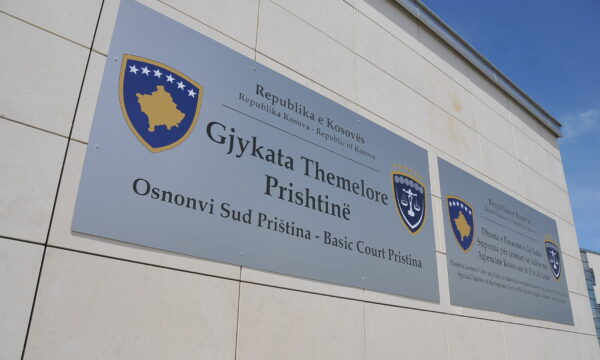
The Basic Court dismisses the indictment against Klodian Allajbeu, Ekrem Lluka and others

Jessica Simpson Takes Lookalike Daughter to Paris For 13th Birthday Amid Divorce

British couple die after Ferrari plunges off mountain in Spain
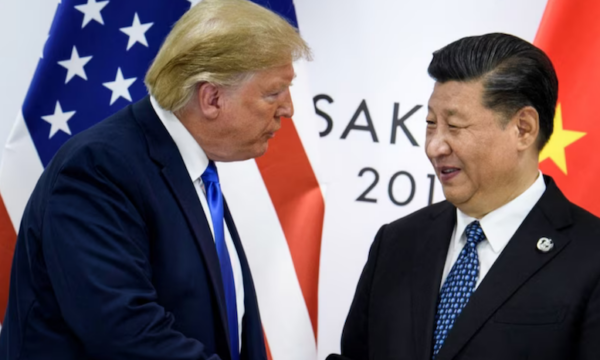
Tariffs Temporarily Cut As Talks Narrow Differences

Argentina’s top court finds 80 boxes of Nazi materials in its basement

Why The Tops Of Microwave-Baked Treats Are Ugly And How To Fix Them
Te fundit
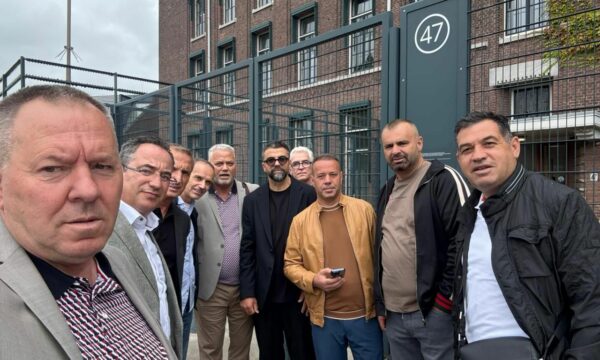
Vendimi i Speciales, Gucati: Ngjan me hakmarrje politike, padrejtësi e rëndë – institucionet të reagojnë

Vazquez largohet nga Reali me deklarata prekëse
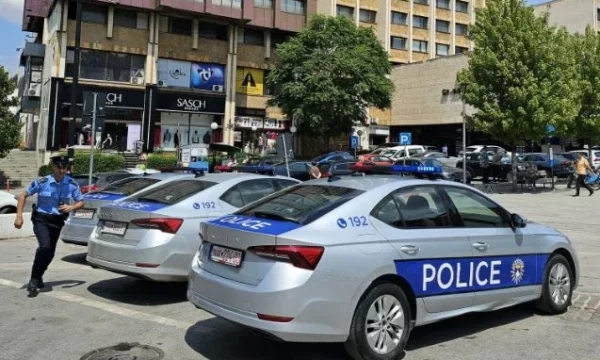
Një person dyshohet se ka rënë nga lartësia te hoteli “Grand”
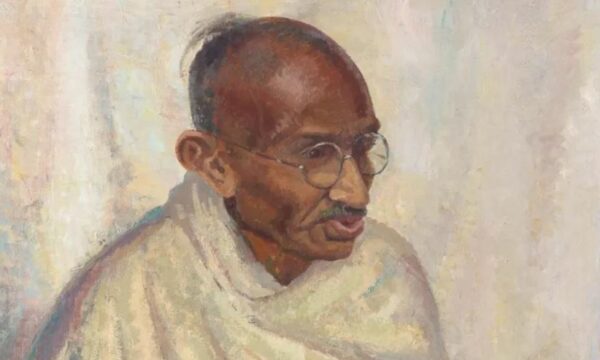
Shitet për mbi 200 mijë dollarë portreti i rrallë i Gandhit i vitit 1931

Vendimi i Speciales për mocionin e ish-krerëve të UÇK-së, Çitaku: Kur paneli Gjykues bëhet njësh me Prokurorinë, ka padrejtësi speciale
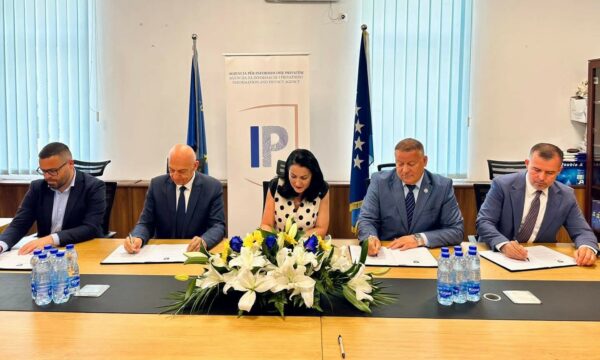
AIP, Zyra e Kryeprokurorit, Policia, IPK e AGK nënshkruajnë marrëveshje për mbrojtjen e të dhënave personale
✕





